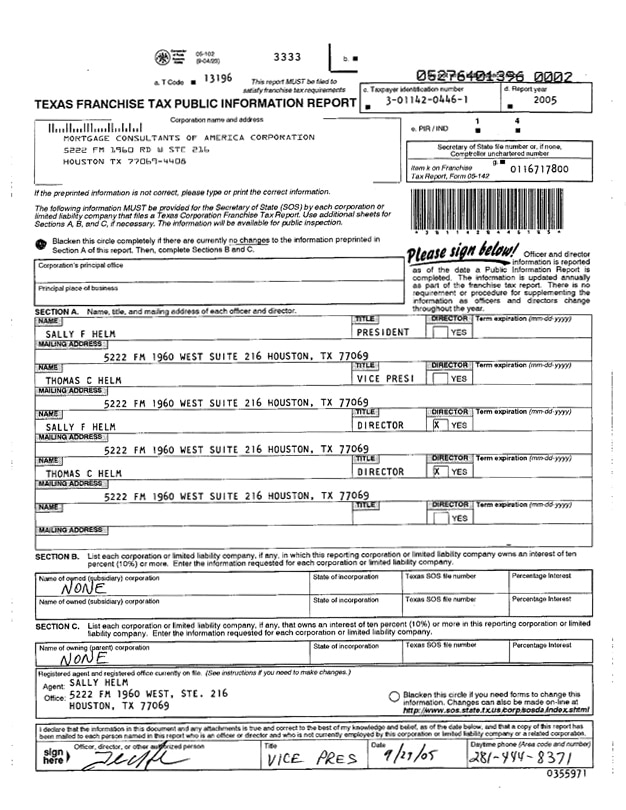Starting an LLC in Texas FAQs
Why Start an LLC in Texas?
If you’re in Texas, or planning to move your business to Texas, there are many great reasons for starting an LLC in Texas. Boasting over three million small businesses, Texas is a highly business-friendly destination. Whether you’re an LLC or a corporation, Texas is a hub for reaching out to national and global markets.

(image source: https://en.wikipedia.org/wiki/Seal_of_Texas)
An LLC, or Limited Liability Company, is a type of private limited company in the United States, which is any type of business entity in private ownership. This means the company is owned by its founders and management and is therefore not beholden to shareholders. So what are the benefits of an LLC registration in Texas? Compared to other business structures, LLCs have a relatively simple, flexible, low-cost structure that offers tax benefits and personal liability protection. See our ultimate guide for How to Start an LLC for a full breakdown of the advantages of LLCs and how they compare to other business structures.
So if you’ve ever wondered how to get an LLC in TX, wonder no more. This simple guide for how to start an LLC in Texas shares all the important steps, requirements, state fees and costs you’ll need during the LLC setup process so you won’t feel lost along the way.
What are the Steps to Starting an LLC in Texas?
Starting an LLC in TX may feel daunting, but we promise it’s not. There are 8 simple steps to starting an LLC in Texas:
Step 1: Name Your Texas LLC
The first step to forming an LLC in Texas is to come up with a name that is not only distinct and memorable, but also one that is available and adheres to Texas naming rules. Your LLC’s name cannot have the same name as an existing business in Texas. You can see if the name you’ve selected is available by doing a Texas LLC lookup in the Comptroller of Public Accounts’ records or contacting the Texas Secretary of State via phone or email.
If your name is available and you’re not quite ready to submit your registration documents, you can file a Texas business name reservation application for $40, which reserves your name for 120 days and gives you the option to renew your reservation as many times as you would like.
Once you’ve established that your name is available, there are a few naming requirements for LLCs in Texas:
- The name of your business must include the words: Limited Liability Company, LLC, or L.L.C.
- Your LLC’s name must be different from an existing business in the state.
- Consult the TX Secretary of State’s list of restricted words and phrases. This comprehensive list details which terms require additional documentation and licensing in order to include them in your LLC name. For example, certain words, including bank, lawyer, attorney, and credit union, may require additional documentation and licensure paperwork.
- Your LLC’s name may not contain terms used to name a government agency, such as the FBI, CIA, Treasury, etc.
Step 2: Designate a Registered Agent
If you want to form an LLC in Texas, you’ll need a registered agent. A Registered Agent acts as an intermediary for receiving official legal documents and passing them on to the LLC owner. All LLCs in the U.S. are legally required to designate a Registered Agent.
In Texas, your LLC’s Registered Agent must be a person with a business office at the same address as your LLC’s registered office (including yourself or an employee or officer of your LLC) or a formal registered agent service that has a Texas address and is available to receive documents during regular business hours. The name of the LLC itself cannot be listed as the Registered Agent.
Step 3: File Articles of Organization (or similar document)
Once you have a name, a Registered Agent, and a Texas mailing address, the next step to setting up an LLC in TX is to submit the official formation document, also known as Articles of Organization (or similar document). In order to complete Articles of Organization (or similar document), you’ll need to know: your business’s name, address, purpose, the Registered Agent’s contact information, and the contact information for your Governing Authority.
There is a $300 filing fee for domestic applications. If it’s accepted, you’ll receive a certificate of formal registration. See our Articles of Organization LLC Template to make sure you don’t miss anything.
If you already have a registered LLC in another state and want to do business in Texas, you must file an Application for Registration of a Foreign Limited Liability Company and pay a $750 fee.
Step 4: Receive a Certificate From the State
The next step for how to start an LLC in TX is receiving the certificate of formation. After your Texas LLC application has been filed and approved, the state will send you a certificate that formally confirms the existence of your LLC.
If you filed an expedited document by mail, it will take 12-14 business days to receive your certificate. It will take 70-72 business days if you filed a non-expedited document. If you filed online, it will take 10-15 business days to receive your certificate. These turnaround times can vary greatly based on workload, staffing, and resources; up-to-the-minute information can be found on the Secretary of State’s website.
Once you have your certificate, your LLC will be able to obtain an Employer Identification Number (EIN), a business bank account, and a business credit card. Officially registering your LLC in Texas also gives you the ability to obtain any necessary permits or licenses to run your business.
Step 5: Create an Operating Agreement
While a Texas LLC Operating Agreement is not required, it is highly recommended. An Operating Agreement lists the obligations and rights of the LLC members to operate, govern, and distribute economic benefits, and these can be customized for your business. Without an LLC Operating Agreement in Texas, your LLC will instead be governed by the Texas Limited Liability Act.
Step 6: Get an Employer Identification Number
The next step for how to create an LLC in Texas is getting your tax ID number. The Internal Revenue Service (IRS) will assign you an Employer Identification Number (EIN) in order to identify your LLC for taxes.
An EIN, sometimes referred to as a Federal Employer Identification Number (FEIN) or Federal Tax Identification Number (FTIN), in nine digits and enables an LLC to file and manage taxes at the state and federal level, open a business bank account, and hire employees. You can obtain an EIN for free via the IRS online portal.
Step 7: File an LLC Franchise Tax and Public Information Report
Now that you know how to file an LLC in Texas, you need to know how to maintain it. LLCs in Texas are not required to file an annual report or pay reporting fees, but they are subject to a state franchise tax, which is due annually on or before May 15th. The first report is not due until the year after your LLC was formed.

(image source: https://www.sec.gov/Archives/edgar/data/1040719/000119312514370111/d716120dex351.htm)
NOTE: Filing Errors
Even if you do your due diligence and thoroughly research how to set up an LLC in TX, mistakes still happen. It’s in your best interest to get it right the first time, of course, but in the event that you register an LLC in TX and then discover an error in your paperwork, correct it immediately by filing a Certificate of Correction.
Mail the corrections paperwork along with the $15 filing fee to the Texas Secretary of State at P.O. Box 13697, Austin, Texas 78711-3697. You can also fax your Certificate of Correction and credit card information to (512) 463-5709, or hand-deliver it to the James Earl Rudder Office Building, 1019 Brazos, Austin, Texas 78701.
What are the Costs of Starting an LLC in Texas?
The cost to file an LLC in TX is pretty straightforward. Here’s a roundup of the costs we’ve discussed so far for creating an LLC in Texas:
- Business Name Reservation filing fee: $40
- Articles of Organization filing fee: $300 domestic; $750 foreign
Does Collective Help with Starting an LLC in Texas?
See? That wasn’t so hard! You now know the steps for how to start an LLC in Texas. If all the steps, forms, fees, and costs sound like too much work, don’t worry. Collective offers a smarter, more affordable way to get your LLC set up and running. We take care of your LLC formation, monthly bookkeeping, accounting, taxes, and more.
Start your LLC with Collective and find out how much you could save on
